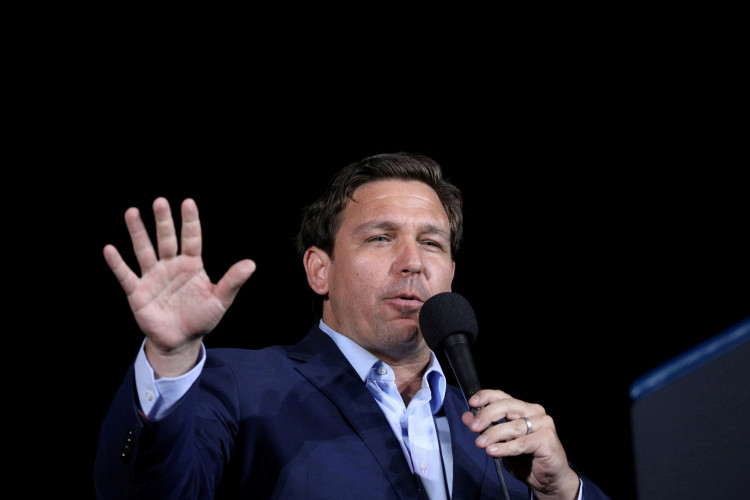In a move aimed at protecting children from the potential dangers of social media, Florida Governor Ron DeSantis signed legislation on Monday that prohibits children under the age of 14 from joining social media platforms within the state. The new law, known as HB3, also requires kids aged 14 or 15 to obtain parental consent before accessing such platforms.
Under the provisions of HB3, social media companies will be mandated to remove existing accounts of children under 14. Failure to comply with this requirement could result in lawsuits filed on behalf of the underage user, with potential damages of up to $10,000, as outlined in the legislation. Additionally, companies found in breach of the law may face penalties of up to $50,000 per violation, as well as being liable for attorney's fees and court expenses.
During the bill-signing ceremony, Governor DeSantis emphasized the importance of protecting children from online threats, stating, "You can have a kid in the house safe, seemingly, and then you have predators that can get right in there into your own home. You could be doing everything right but they know how to get and manipulate these different platforms."
The governor also acknowledged the challenges parents face in navigating the digital landscape, saying, "Ultimately, [we're] trying to help parents navigate this very difficult terrain that we have now with raising kids, and so I appreciate the work that's been put in."
HB3 is a revised version of a stricter bill previously vetoed by DeSantis, which had proposed banning social media accounts for children under 16 and mandating Florida residents to submit identification or other verifying documents to join social media platforms. The new law is scheduled for implementation in January 2025.
Popular social media platforms, such as Instagram, Facebook, and TikTok, typically enforce a minimum age requirement of 13 for users, in compliance with the 1998 "Children's Online Privacy Protection Rule" (COPPA), which prohibits the collection of personal data from children without parental consent. However, a survey conducted in 2022 by the nonprofit research organization Common Sense Media revealed an increasing trend in usage among children aged eight to 12.
While the bill does not explicitly name the social media platforms impacted by the legislation, its language applies to sites where more than 10 percent of daily active users are under 16 years old and spend an average of two hours per day on the platform. Platforms featuring "addictive features" like infinite scrolling and push alerts are also subject to the regulations outlined in the bill.
State House Speaker Paul Renner emphasized that these habit-forming characteristics are central to why children remain engaged on these platforms for extended periods, potentially guiding them toward harmful directions. Renner and other advocates of the new law argue that social media use can harm children's mental health and can lead to sexual predators communicating with minors.
Despite the intention to protect children, Florida's new social media law is expected to face legal challenges over claims that it violates the First Amendment. Carl Szabo, vice president and general counsel for NetChoice, a coalition of social media platforms whose members include Meta, Google, and X, called the law "unconstitutional" and expressed disappointment in Governor DeSantis' decision to sign the bill.
Both DeSantis and Renner addressed the potential legal hurdles during the bill-signing ceremony. Renner stated, "You will not find a line in this bill that addresses good speech or bad speech because that would violate the First Amendment. We've not addressed that at all. What we have addressed is the addictive features that are at the heart of why children stay on these platforms for hours and hours on end." He also vowed to "beat" NetChoice in the anticipated legal battle.
Governor DeSantis defended the constitutionality of the bill, saying, "Any time I see a bill, if I don't think it's constitutional, I veto it." He described the bill as "a fair application of the law and Constitution."





